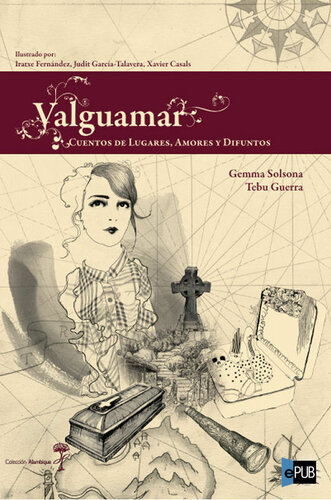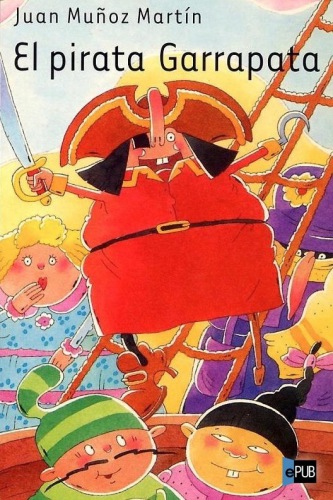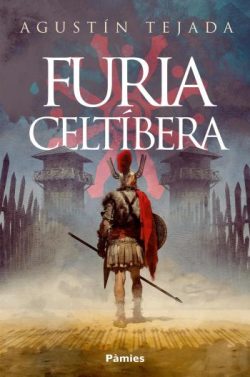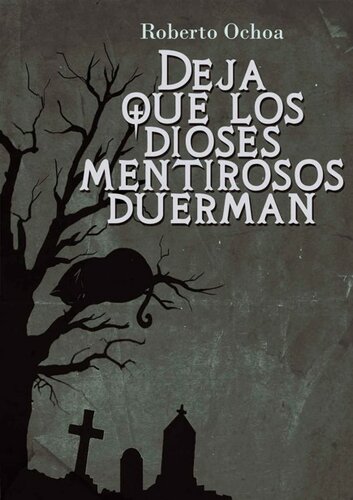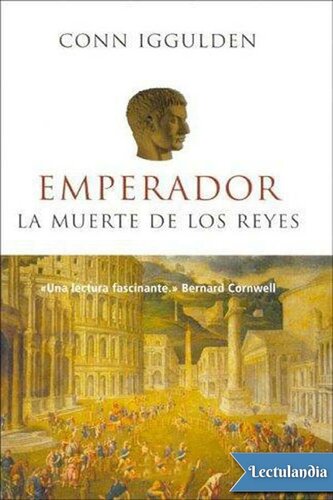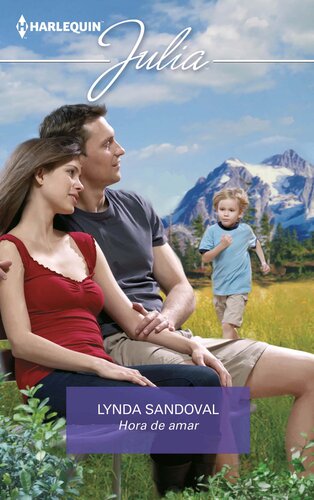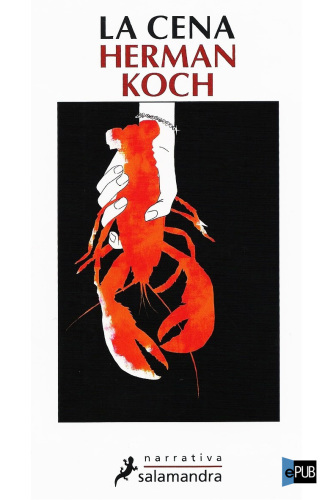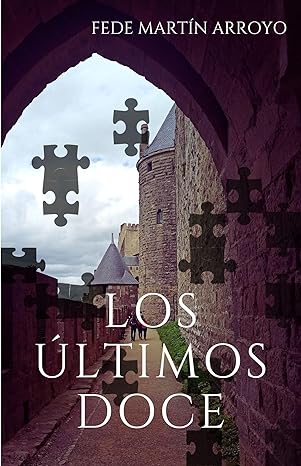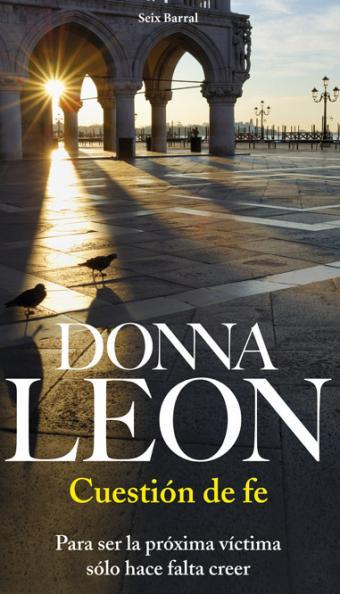oleebook.com
La Casa del Viento de Hardie, Titania
de Hardie, Titania - Género: Ficcion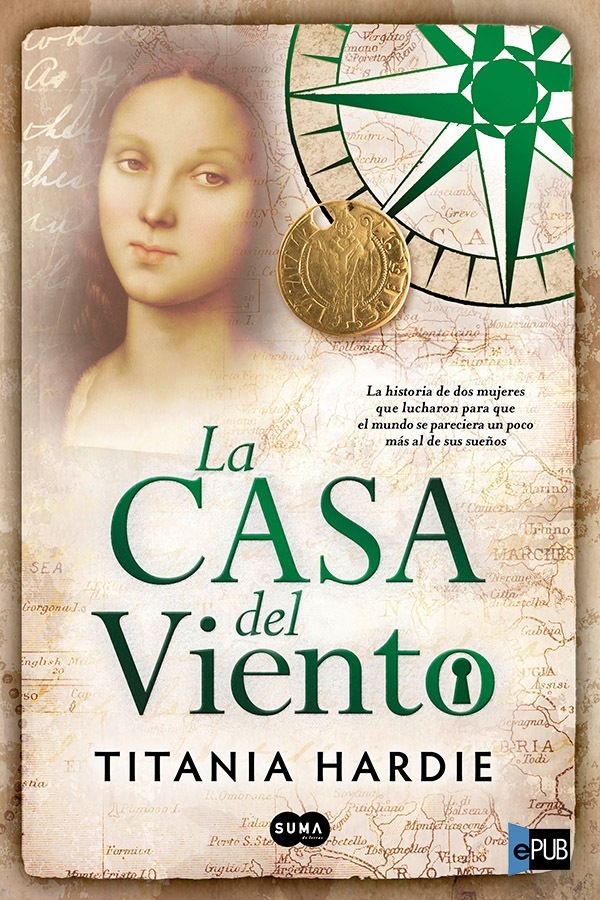
Sinopsis
Una leyenda entre las ruinas. Un misterio que nadie supo desvelar. Si investigas el pasado, ¿podrás resolver el futuro?
San Francisco, 2007. Madeline Moretti llora la pérdida de su prometido. Ante su desconsuelo, su abuela le regala un viaje a la Toscana, de donde procede su familia. Allí Maddie descubre una casa en ruinas. Destruida hace siglos durante una legendaria tormenta en la víspera de Santa Inés, desde entonces se la conoce como la Casa al Vento, la Casa del Viento.
Toscana, 1347. Mia vive en silencio desde la muerte de su madre. Reside con su tía en una villa que acoge a peregrinos de paso. Una noche de tormenta, una pareja busca refugio en ella. Mia queda embelesada ante la belleza y la sencillez de la joven novia, pero no entiende por qué mantienen sus nombres en secreto. ¿De dónde proceden? ¿Y cuál es su historia?
Aunque varios siglos las separen, tanto Maddie como Mia intentan encontrar su propio camino. Lo descubrirán gracias a la joven que salió indemne de las ruinas de la Casa del Viento.
Descargar
Descargar La Casa del Viento ePub GratisLibros Recomendados - Relacionados
Reseñas Varias sobre este libro
I really wanted to this a lot more than I actually did. I adore historical fiction and I love the cleverness of concurrent storylines, centuries apart, having bearing on each other, but this just didnt work for me.
The problem for me was that it was just too darned slow. Hardy uses achingly beautiful prose that absolutely sings off the page, but the plot unfolds at a maddeningly sedate pace, not just in one timeline, but in both. As a result, I grew bored with the characters, their loss, their pain, their motivation, and their relationships, and grew tired of waiting for everything to happen.
The fact is, that the same writing device has been used before to better effect (if youve read Labyrinth by Kate Mosse, youll know what Im talking about, and if you havent read it, I can heartily recommend it!) and I found myself forever waiting for something other than the writing to excite me. Truly, the writing often verges on the sublime and I give it a higher rating as a result, but it was let down by pedestrian plot and plodding pace.
I will be interested in reading more by Titania Hardy if only to see if the tale is worthy of the writers obvious talent with words.read-in-2011 reviewed-for-author-publisher10 s Jael467 6
It doesn't happen often, but I couldn't finish a book. There are a lot of good elements in The House of the Wind by Titania Hardie, but after 246 pages I just wasn't feeling it. I usually give up on a book after about 70-80 pages. I go into every book believing I'm going to love, but sometimes that just isn't the case. I started The House of the Wind last month. There were some parts I found interesting, and others I didn't. I put it down and started other books, believing once I come back to it I would be interested again. It just wasn't the case.
I was intrigued by the plot. San Francisco attorney Madeline "Maddie" Moretti is in mourning following the death of her fiance. Working offers a distraction, but Maddie still seems adrift. Her firm is working on a big case, but sometimes it seems Maddie isn't totally focused on it. There are moments when Maddie is even socializing with the opposition. One person happens to be a family friend. I don't know much about the corporate legal world, but isn't it a conflict of interest to be schmoozing with the person you're suing? Maddie's grandmother notices the change and sends her granddaughter to Tuscany. Hopefully, the trip gives Maddie a chance to recover. Maybe she can back to her old self. Time away from the corporate shenanigans is just what the doctor ordered. While there she delves into the history of ruined villa. The history is what ties Maddie to the secondary storyline.
Maddie's plot, which takes place in 2007, alternates with Maria "Mia" Maddalena of 1347 Tuscany. Ordinarily I don't have a problem with books that alternate between centuries and points of view. I've read several books that, and loved them (I'm reading one now: The Orchid House). This was just one of those cases where it didn't work for me.
Mia is also grieving following the death of her mother. She is so overwhelmed by grief that Mia doesn't speak. Mia lives out her days with her aunt. She uses gestures to communicate. She doesn't have the strength to speak until a mysterious young woman brings Mia out of her shell. Another stranger also helps Mia unravel her past. At the same time a deadly disease is sweeping across the area. It was rather interesting and stomach turning to read how diseases were treated.
What didn't work for me is the long descriptive passages. I have no problem with long books, but perhaps if this book were 100 pages less my opinion would be different. By the time you get back to one character, you forget where you left off with the other. It was hard to connect with the characters. Either plot would have made a good book on it's hard. But together it just was my cup of tea. It doesn't mean the rest of you won't it.
Notes: I purchased a copy from an online bookseller.4 s Linda Bridges242 27
This intriguing dual-story line novel tells of Maddie Moretti, an up-and-coming lawyer in San Francisco who works for a human-rights firm. They are involved in a large class-action case in which many of the workers at Stormtree Components have experienced serious, if not life-threatening, illnesses for which the company is denying any responsibility. To complicate matters, Maddie has a past relationship with the owner of the firm. When tragedy strikes Maddie's personal life, she sinks into a depression and sees no hope for the future. Her grandmother rescues her by sending her to Italy to search for some peace of mind by finding her roots.
The other story-line deals with Mia, a young woman in Italy in the mid-1300s. She lives with her aunt who runs an inn where many pilgrims stop on their way to a nearby shrine. The appearance of a young couple late one night changes everything. The wife had been imprisoned by her own family for refusing to give up the man she loves and become a nun instead. Miraculously, she is saved and flees with her young husband where they find refuge at the inn.
As the two stories of Maddie and Mia intertwine, each discovers things about herself and her future. Maddie discovers the story of the House of the Winds, where Mia had lived over 700 years earlier and finds peace that life does hold a future for her.
This is a compelling story that is beautifully written. The emotional turmoil of both young women is accurately portrayed, and the details of the setting, especially the parts in Italy, are beautiful. There is a bit of myth, mystery, and romance woven together as well as a nice slice of medieval Italian history. I loved the book.2013-books4 s VivienneAuthor 2 books107
I felt this was an excellent example of a novels in which contemporary and historical settings are interwoven. Sometimes such a mixing can be jarring but here it is seamless and feels very natural.
Titania Hardie takes her time in developing her characters and settings, which may not be to everyone's taste but this pace suited my mood perfectly.
She also exhibits her extensive knowledge of myth, legend and esoteric symbolism with confidence and grace.
I loved it.
contemporary historical-fiction historical-romance3 s Daniela Racina368 29
A Mr. Gray stavo già per interrompere la lettura. Poi ho continuato. Purtroppo. Non che sia un libro orribile, anzi si lascia leggere, ma: ci sono un sacco di forzature ed imprecisioni storiche, mitologiche, logiche, giuridiche; si ficca a forza gli Etruschi in qualsiasi contesto; I personaggi parlano tutti con la stessa voce; frasi ispiratorie, poesie ad muzzum dette ad ogni pié pagina, manco I personaggi fossero cresciuti a latte e poesie; eccessivo sentimentalismo; troppa morale (oddei le donne nel passato non avevano diritti, giusta causa di malesseri da parte di una ultraventenne, chissà cosa studiava al liceo); sproloqui femministi senza cognizione di causa; tutti commisserano la protagonista, che è ovviamente al centro del mondo, degli interessi amorosi altrui, del lavoro, è l'unica che può fare letteralmente qualsiasi cosa; Il giudice che interpella l'imputato dal punto di vista morale è peggio di un'eresia; Atena che diventa Diana perché boh, così; l'unica divinità etrusca è Giano, gli altri dei non esistono e non si approfondisce mai la cultura etrusca; l'Italia amata dagli stranieri più che dagli italiani stessi, ma ovviamente si parla di un'Italia romanticizzata, con gli stereotipi come punto fisso, in particolare quelli di campagna, mancavano da nominare pizza e mandolino ed avevamo finito gli stereotipi; forzature di trama; i personaggi non fanno, non subiscono, dicono di subire; non si raccontano gli eventi, si "dice" degli eventi; risvolti talmente stereotipati che mi sembrava di leggere un harmony di fine anni '50. E mi dispiace perché ultimamente ho la fissa per le storie di multi generazioni familiari, ma qui non c'era né questo, né mistero, né nulla. L'unica cosa interessante era la causa contro la Stormtree ed è stata rovinata pure quella. Peccato, speravo in molto di più da questo libro.2 s Allie Riley468 188
This book started out promisingly and lost its way. It is badly written with such flat characters that by about halfway through I rapidly ceased to care about any of them or, indeed, what happens. Hardie would have written a more successful novel had she concentrated on the Stormcrest scandal that Maddie's legal firm were fighting. Although I doubt it would have improved her turgid prose. Avoid - I won't get those hours of reading back!2 s Megan94
This book took awhile to get interesting. I read a few chapters, and then put it down for about a year. When I managed to get back to it (and start over) it took about the first 100 pages until I was really interested and then about half way through I couldn't put it down! Ended up being an awesome read and worth the effort to keep going through the begining!1 Stephanie1,475 84
Original review, with graphics
http://fangswandsandfairydust.blogspo...
Hardie has an entrancing way of mixing fiction with mythology and history. The resulting work combines contemporary story telling with a small education in legend. This story takes a legend, put into verse by Keats ( see article at wikipedia.org The Eve of St. Agnes), and painted by Howard and mixes it up with today's world of lawsuits, power plays, love, travel, and family.As I am accustomed to fast moving genre fiction Hardie's beautiful prose seemed wordy to me. It is very detailed and descriptive of place; a bit too much to my taste.
The author parallels the lives of two woman, linked by DNA and coincidence to Italy, each other and the legend of Saint Agnes. CUNY Brooklyn's web page on the Keats poem "The Eve of Saint Agnes" describes:
St. Agnes, the patron saint of virgins, died a martyr in fourth century Rome. She was condemned to be executed after being raped all night in a brothel; however, a miraculous thunderstorm saved her from rape. St. Agnes Day is Jan. 21.
Keats based his poem on the superstition that a girl could see her future husband in a dream if she performed certain rites on the eve of St. Agnes; if she went to bed without looking behind her and lay on her back with her hands under her head, he would appear in her dream, kiss her, and feast with her....
What the poem lacks for some readers is significant content; it is, for them, "one long sensuous utterance," "a mere fairy-tale romance, unhappily short on meaning." Clearly, the portrayal of ardent young love dealing with a hostile adult world and contrasted with aging and death has an inherent appeal.
http://academic.brooklyn.cuny.edu/eng...
This struck me as I felt as "some readers" do with the Keats poem that this story lacked significant content, as a split story will where indeed there is more to tell but fewer words in which to tell it. Combine the number of pages with someone writing lyrical prose with detailed minutiae and the effect is not strength but dilution.
Hardie doesn't attempt complete parallels with either the poem or the descendant/ancestors eitherthank goodness. That would take it from an interesting idea and story to a gimmick, and I doubt that was the goal.
I felt the whole story was rather dream with nightmares of loss and fear. People are rarely as introspective or idiosyncratic as the characters in this book. In a way it makes the contemporary characters as mythic as the original legend around which the story is constructed.
It's definitely not genre fiction; it is too internally driven. The supernatural or paranormal makes about as much headway in the life of the characters as it did in my family (of similar ethnicity), and rests on the link, similar affinity for the production of atmospheric changes, what was deemed "heresy," and a slight psychic ability.
It certainly made me miss all of Italy and want to go back. A great read if you love Italy, descriptive prose and/or San Francisco. I found myself tearing up several times.
Enjoy!.
The text of Keats poem "The Eve of Saint Agnes" go here www.bartleby.com (http://www.bartleby.com/126/39.html)
1 Ikebukuro152 51
Un avis un peu mitigé sur cette lecture car si jai particulièrement aimé les chapitres concernant lhistoire de Mia, Gennaro et Agnesca qui se passe dans la Toscane de 1347, jai eu beaucoup plus de mal à rentrer dans la partie contemporaine du livre et javoue que lhistoire de Maddie ma un peu laissée sur ma faim. Je me suis beaucoup moins attachée aux personnages de cette époque, jai moins adhéré au récit et aux événements Du coup, ce contraste entre les Etats-Unis et lItalie et entre la Toscane du 14ème siècle et lAmérique actuelle a créé une trop grande inégalité entre les deux parties du roman sans doute au détriment de lensemble du récit. Généralement je suis plutôt fan de ce genre dhistoires qui crée des liens entre les époques mais dans ce cas précis, je finissais par attendre avec impatience les chapitres concernant lhistoire de Mia. Jessayais de conserver une certaine impartialité au fur et à mesure que javançais dans lhistoire mais sans grand succès. Je trouvais quil y avait plus de mystère, de magie et de rebondissements dans lhistoire de Mia que dans celle de Maddie. Résultat, jai trouvé la partie contemporaine du roman beaucoup moins intéressante, plus fade et surtout plus convenue je trouve quelle aurait méritée 100 pages de moins pour vraiment donner du rythme au récit.
Je pense que le fait de mattacher beaucoup plus aux personnages de la partie historique a contribué à accentuer mon ressenti plus mitigé sur la partie qui se passe à notre époque. Par contre, cela reste une lecture agréable et divertissante et moi qui aime lItalie et particulièrement cette région, jai trouvé mon bonheur dans les descriptions de la campagne de Sienne. Lauteur a réussi à retranscrire, la lumière, les odeurs, les paysages de lItalie des petits villages et jai apprécié son travail sur ce point. Cest un livre qui se lit facilement avec une écriture agréable et je pense que tous ceux et celles qui aiment la romance lapprécieront mais pour ma part, il ma manqué un petit quelque chose pour adhérer totalement à lhistoire.1 Blodeuedd Finland3,477 306
This book alternates between 2 POVS. First there is Maddie in the present day who has lost someone near to her, and she is just slowly moving along She will go to Italy and stay with friends and that is where the second POV comes in. in 1347 a young woman lived at the place she visits and they are connected in some other way too, but that takes a while to know since we need to know young Mia's life first. The title comes from the woman Mia meets, a woman who is fleeing from a cruel fate.
I am a bit torn when it comes to this book, some chapters moved so slowly and I was not interested at all. it was a slow book at times, and it took me quite some time to get into the book. And even when I did that I d Mia's story more. Sure it was sad that Maddie lost that special someone, and we read how she went to Italy, but she did not stay long, and most of her parts were about the legal case she was involved in as that was her job. The Mia parts were much more interesting, first with the mystery woman who comes with a man, who was she? We learn that. And the how the Black Death sweeps through Italy and Mia is in the middle of that, and all the time while reading I wonder if she will survive. Because first there is the Black death who is going to kill plenty, then there is a lot of other factors too. So those parts were just better. The flow was faster too.
That is why I am torn, I just d some parts in this book better than the rest. And I did not feel that Maddie got to learn about the past either. Or was it we who was supposed to learn?
Conclusion:
If it sounds interesting then it might just be the book for you.fiction historical-fiction1 Trish9 2
The House of the Wind, by Titania Hardie, tells the story of two women, centuries apart, whose lives are woven together by the myth of the woman who walked away unscathed from the ruins of the Casa al Vento. Madeline Moretti (Maddie), a lawyer from San Francisco in 2007, is mourning the accidental death of her fiancé. Maria Maddalena (Mia), living in Tuscany in 1347, has seen her own mother killled in a brutal fashion. We learn how their future unfolds and how history binds them together in a very spiritual way.
The novel is beautifully written and I only wish I'd been reading it under warm Tuscan skies with no time limits, rather than snatching chapters here and there, which, to be fair, didn't allow the book to work its magic on me.
The narrative swaps from one century to another and I do find that a bit tricky. Just when I'm being drawn into one character's story and feeling empathy, the scene changes and I have to work hard to remember where I was with the other. The book is quite long and at times I was urging the plot to move a little faster. Yet there were some fascinating insights into corporate legal work in the United States plus some very interesting detail about medieval life in Europe during a very unstable period in history.
And how could I not be captivated by the setting in Tuscany of the very real hotel Borgo Santo Pietro which sounds so luxurious and serene, I'm tempted to book a holiday there right away.
I have very fond memories of Tuscany as our son was conceived there 16 years ago. Maybe there is magic to be found in that beautiful part of Italy after all.1 Sonia309 119
Tatiana Hardie tenía una buena idea, un buen argumento, cuando se puso a escribir esta novela. Decidió además utilizar ese estilo tan de moda en el que la narración se divide entre un tiempo presente y uno pasado que de algún modo están conectados. Así podía haber creado una gran novela, sin embargo a la hora de desarrollar la historia, el resultado no es tan bueno como cabría esperar.
Si bien la trama es atrayente y en ella se combinan hilos de tipo amoroso junto con otros épicos y algunos de cierto misterio, la narración resulta aburrida por el modo en que la autora la dilata a base de paja. Emplea demasiados detalles innecesarios para narrar o ambientar: como que los protagonistas no encontraron sitio para aparcar en un lugar y aparcaron en tal otro sin que el cambio de aparcamiento tenga ninguna consecuencia o relevancia. Lo que podría haberse contado de forma entretenida y magistral en 300 páginas se alarga así hasta el doble de su longitud, se pierde de este modo la capacidad para crear intriga o tensión y la novela carece de fuerza.
La falta de precisión en la narración; esa capacidad que tienen algunos autores de que cada hecho, cada línea, cada objeto tiene una función, un fin en la historia;llega hasta la propia conclusión dónde la autora parece no ser capaz de cerrar de un portazo en el momento en que es evidente que debería hacerlo.
En resumen, lo que podría haber sido un buen libro que encierra una bonita historia, acaba resultando un tanto aburrido y mediocre. No puedo recomendarlo, hay muchas otras cosas mejores para leer.1 Kell248
I really wanted to this a lot more than I actually did. I adore historical fiction and I love the cleverness of concurrent storylines, centuries apart, having bearing on each other, but this just didnt work for me.
The problem for me was that it was just too darned slow. Hardy uses achingly beautiful prose that absolutely sings off the page, but the plot unfolds at a maddeningly sedate pace, not just in one timeline, but in both. As a result, I grew bored with the characters, their loss, their pain, their motivation, and their relationships, and grew tired of waiting for everything to happen.
The fact is, that the same writing device has been used before to better effect (if youve read Labyrinth by Kate Mosse, youll know what Im talking about, and if you havent read it, I can heartily recommend it!) and I found myself forever waiting for something other than the writing to excite me. Truly, the writing often verges on the sublime and I give it a higher rating as a result, but it was let down by pedestrian plot and plodding pace.
I will be interested in reading more by Titania Hardy if only to see if the tale is worthy of the writers obvious talent with words.
read-in-20111 Julia314 3
Bought this book on impulse and totally judged it by its beautiful cover! I thoroughly enjoyed it. Probably 4 and a half stars but felt generous! Two story lines, one in the present and one in the 14th century, with similar themes and shared imagery. Loved the role of the wind, and the gardens as well as the characters and how they developed. Just a really great read with some depth to it, which gives it a meaningful feel.1 Penelope498 125
An atmospheric novel which whilst doesn't move along at any great pace manages to be wonderfully readable. Filled with evocative descriptions that transport you to other places and time and woven throughout with symbolism and mythology this is a book to be savoured a fine wine. Beautiful!fiction1 Theresa333 2
I enjoyed this novel but I realize it is not for everyone. The lives of late 18th century well developed characters and a character from current times parallel. So it begs the question as to whether or not we can learn from our ancestors . . . .1 Karen304 26
A quick undemanding read. While I found the historical parts of the story interesting I din't the modern day parts, I didn't care about any of the characters in the modern part of the story.2012 historical-fiction italy ...more1 Lee'ahAuthor 1 book3
This was an excellent read! The writing was lyrical! The story was engaging. The characters had depth. I enjoyed the traveling back in time in Tuscany!1 Shari60
I finally finished reading the House of the wind. Surprisingly it took me nearly 3 weeks to finish. And my feelings toward it are ambivalent. There are moments I d it and moments when I felt what the heck is happening? Where is this going? .
But lets starts from the beginning. I was excited about the dual timeline and wondering how they would connect to each other and I think it sort of became pretty obvious early on specially when they kept mentioning Maddies and Mias hair. Anyway my excitement soon dissipated when I found myself forcing myself to read it. And as much as I was excited about the dual timeline I wished the author had written two different books. It was a little disorienting to pull myself from one character just when their story was getting interesting to immerse myself in the other. The latter half of the book got very interesting and I hated to wait for the characters story to unfold.
I also wish the author had reduced the lengthiness of the book . I do not know whether it was the abundance of descriptions but I just felt the story could have been told in less.
Overall at the end I was satisfied with the ending and how the reader is the only one aware of the connection between the past and present. The modern character Maddie is not aware of her ancestor Mia or it is her bones that she found at the hotel she was staying in Italy. The reader is the only one aware of the myriad details that connect the two and that made it exciting somehow. And somehow that makes sense... we all come from people who went before us and yet we know nothing about them. Nevertheless the connection remains and will always do so and in someone ways always influence us.
This entire review has been hidden because of spoilers.Show full review Libri e Altri Disastri734 83
Recensione di Francesca:
È sempre piacevole andare a rispolverare libri che si erano messi da parte, perché non adatti a noi in quel momento.
È ciò che mi è accaduto con questo romanzo che avevo interrotto alla ventesima pagina.
Sapete bene che amo le storie su più piani temporali e non mi smentisco neppure questa volta, facendovi spaziare dalla San Francisco odierna alla Toscana medievale.
Nella vita di Madeline tutto gira alla grande: è un avvocato di successo, vive in un delizioso appartamento, ha una famiglia che la ama e una nonna che la adora. Sta per sposare lamato Christopher, giovane e brillante medico.
Cosa potrebbe andare storto? Un ubriaco alla guida della sua auto provoca un incidente che costa la vita a Chris e getta Madeline in un tunnel buio.
Ma le Pleiadi guidano la vita di Maddie, nata sotto il cocciutissimo, ostinatissimo segno del Toro (ne ho sposato uno per cui parlo con cognizione di causa) e la porteranno nel cuore della fulgida Toscana. Terra natale di Mia, Jacquetta e Agnesca, le altre protagoniste della storia.
Questa volta però siamo in unepoca che noi italiani conosciamo bene: è lItalia delle Signorie, delle infinite lotte di potere tra guelfi e ghibellini, dove ancora si narrano le leggende sulle streghe.
Il finale si chiude in un sospeso di rinascita e speranza. Di accettazione dellinevitabile.
Il libro mi è piaciuto davvero molto, tanto da spingermi a comprare lopera prima di questa scrittrice.
È un romanzo che superato il blocco iniziale regala belle emozioni, capace di far viaggiare con la mente. Che, visti i tempi, male non fa. Pepe BarrascoutAuthor 54 books3
Cada cierto tiempo uno se topa con libros tan malos, que se lamenta el tiempo perdido. "La Casa del Viento", es de esos libros que es mejor no haber empezado a leer nunca.
Dos historias paralelas que ocurren con varios cientos de años de diferencia y que básicamente es como leer dos libros en el mismo. La autora no tuvo mejor idea que ir intercalando un capítulo de la historia que se desarrolla en el presente y uno de la historia que se desarrolla en el pasado.
Habría sido quizá una buena idea, si no es porque las historias no guardan ninguna relación entre sí, apenas y muy por encima, la protagonista del presente, va de vacaciones y se hospeda en la casa donde vivió cientos de años antes, la protagonista del pasado y esa es toda la relación entre las dos historias.
Un desastre de libro por donde se vea, aburrido, interminables narraciones y detalles que al final no aportan nada a la trama y que si no hubieran estado, igualmente la historia queda igual. Pareciera que la editorial le pidió un número mínimo de páginas y con tal de cumplir, llena con relleno el espacio, lo malo es que el relleno fue mas que la historia en si.
Luego tratando de comprender un poco mas, quise saber que otra cosa tiene publicado la autora y leyendo su biografía, me llevo una tremenda decepción y comprendo lo fatal de su narrativa.
Por ningún motivo recomiendo su lectura, no vale la pena, mejor pasen al siguiente libro en sus listas de lectura. Rebecca173 4
This book could have been good... if it was about 200 pages shorter. If it focused on the actual interesting parts, the blurb suggested, instead of meandering through the boring bits of the main character's life, such as spending hours in a flower shop or making a high-stakes law case sound boring. If any of the characters in the present-day story felt at all developed and made sense (I may be a heartless person but it's hard to feel sorry for Maddie missing her fiance if we never actually meet him, and don't even get me started on the randomness of her other love interests). It could have been good if the author actually WROTE her interesting scenes - she did this bizarre thing of detailing the preparations for a plot point, then skipping to after the major event happened and telling us what happened by having the characters think about it. How about just WRITE THE ACTUAL SCENE?? and it happened multiple times too. It could have been good if the ending didn't seem hurried and unearned. If there wasn't a really bizarre, kinda racist bit with a mystical dying Native American woman that plays into uncomfortable stereotypes of the magical Native American.
The only reason this got two stars instead of one is that for some bizarre reason I couldn't put it down so something somewhat captivated me. ricercatricedistorie23 4
Ho letto questo libro per un #bookcrossing: è stata unesperienza molto divertente. Lautrice ha un modo di scrivere delicato, gentile e intriso, al contempo, di una forte cultura in materia letteraria. Il fatto che la maggior parte della storia fosse ambientata in Toscana
Autor del comentario:
=================================
